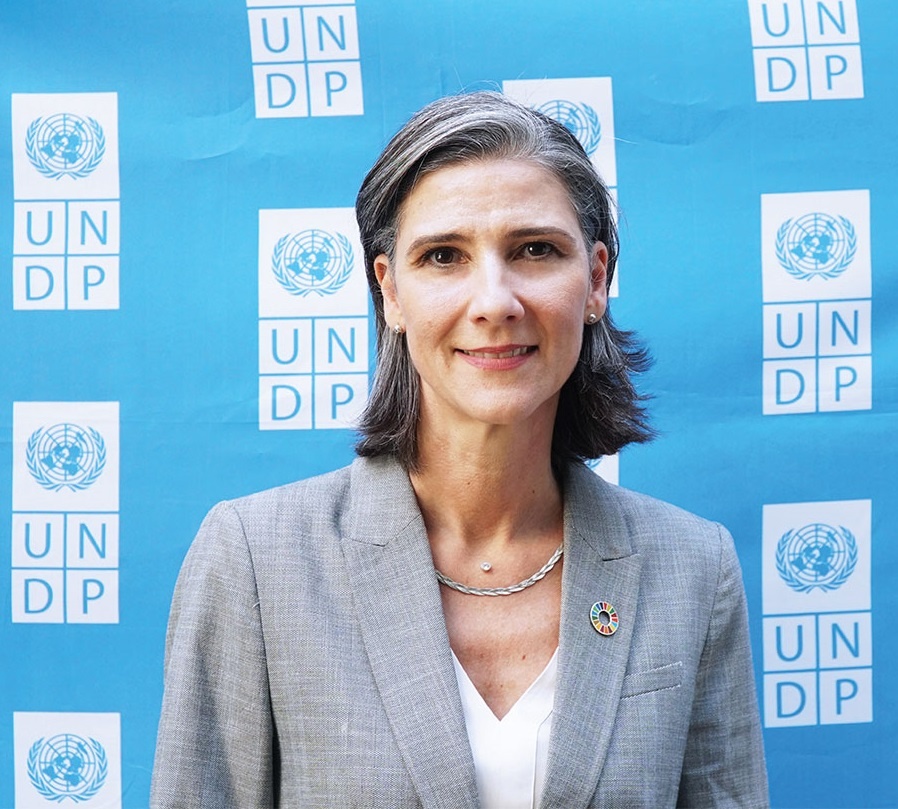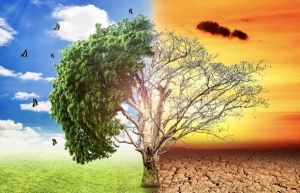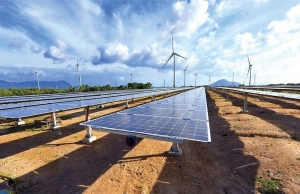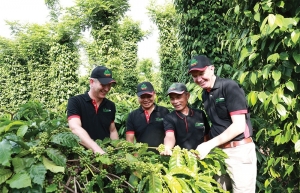Intensifying climate change a threat to global human rights
 |
| Ramla Khalidi-Resident representative United Nations Development Programme in Vietnam |
Climate change threats will constitute one of the greatest challenges to the enjoyment of human rights in our era. Last week we had the opportunity to discuss with experts from the field how to achieve just, green and sustainable environmental development with principles of equity and human rights at the centre.
We also presented a new policy paper by the United Nations Development Programme (UNDP), supported by the Embassy of Norway to Vietnam, that provides an overview of the nexus between climate change and human rights. Our guiding questions for this study were: which human rights are affected by climate change impacts? And how can we address those impacts in a way that minimises or remedies adverse effects on human rights enjoyment, instead of exacerbating them?
The study answers those questions by providing an overview of human rights impacts and roles and responsibilities of stakeholders based on UN normative instruments on Human Rights and Climate Change. The UNDP recommends to policymakers and government authorities at all levels to ensure that climate change adaptation and mitigation policies and measures, including the just energy transition, are effectively grounded on a human rights-based approach that puts people’s rights at the centre and meets the core principles of participation, accountability, equality, empowerment, and legality.
I would like to offer three reflections and recommendations for a more inclusive and rights-based approach to climate action in Vietnam to ensure that no-one is left behind – the core aspiration at the heart of the 2030 Agenda and the Sustainable Development Goals.
Firstly, it is fundamental to integrate a human rights analysis of the implications of climate change as part of the broader and mandatory policy impact analyses.
Considering that Vietnam has ratified the core human rights treaties such as the International Covenant on Economic, Social and Cultural Rights, the International Covenant on Civil and Political Rights, as well as the Paris Agreement, human rights standards should be integral to Vietnam’s implementation of climate policies to fulfil commitments made last year.
For reasonable predictions on the human rights impacts of implementation measures, a solid baseline of the existing impacts of climate change on human rights enjoyment is vital. In that context, it is hard to understate the importance of using data and evidence in the planning and policy-making efforts around these complex and integrated policy areas.
Subsequent monitoring and evaluation can only be adequate when a coherent approach to data transparency and access to information is ensured from the outset. For instance, the UNDP complements government data with PAPI (Provincial Governance and Public Administration Performance Index) data, including a dedicated set of indicators on environmental governance. In addition, we developed the Climate Risk Index as an open-source platform to update climate risk information, increase risk-informed planning and enhance transparency by utilising scientific evidence-based risk assessments.
Secondly, a whole-of-society approach is needed to mobilise the innovation, expertise and collaboration required to tackle the climate crisis. The voices of women, youth, migrants, ethnic minorities, academia, and social organisations are crucial to sustainable policy outcomes. Therefore, their participation and consultation in planning and policymaking should be an integral requirement of those processes.
Not only is their participation essential to drive a green, inclusive, and resilient future for Vietnam, they are themselves the most significant agents of change and implementors of climate actions.
In this context, the role of advocates for environmental and human rights is important. Independent experts and advocates have an essential role in fostering public debate on environmental rights and climate change action. To fulfil that vital function, their inclusion needs to be protected by law and in practice.
In Vietnam, for example, the UNDP together with the Ministry of Environment and Natural Resources supported a youth cohort from all regions to formulate two special reports on youth for climate action, in which they laid out their roadmap to accelerate youth-led climate actions.
Encouragingly, Vietnam’s voluntary pledges to the United Nations Human Rights Council and support for recommendations in the third Universal Periodic Review cycle also underscore the importance of participation, consultation and engagement of the communities and organisations on the ground.
Thirdly, voice, participation, data collection, and transparency are not enough if there is no accountability.
Communities and individuals must be able to hold policymakers accountable for their international and domestic commitments. Therefore, mechanisms to ensure dialogue, access to information, and legal remedy help resolve disputes and provide effective remedies and are an essential part of our call for climate justice.
The National Assembly, the Supreme Court, central and local governments, and businesses all have roles to ensure the oversight of equitable environmental policies, but also to respond to citizens’ and communities’ human rights enjoyment, including the right to an effective remedy. Capacity-building efforts and training of public officials, judges and legal practitioners, among others, is a key priority to help prepare state institutions to address the complex issues that are arising.
The engagement and legal awareness of the public are crucial for their understanding of their rights and how to seek their enforcement. Education on human rights impacts of climate change and legal empowerment should therefore be a priority focus, especially for the groups most vulnerable to climate change.
 | Vietnam calls for comprehensive approach in addressing climate change challenges Vietnam called for a comprehensive approach in addressing challenges relating to climate change, environment and bio-diversity, at a meeting of the Economic and Financial Committee of the United Nations General Assembly’s 77th session on October 10. |
 | Overseas investors chime in on climate change conundrum As one of the countries increasingly impacted by climate change, Vietnam is accelerating its crucial transition to become a green economy, which opens up new business opportunities for foreign direct investment. Last week’s webinar on Vietnam’s green economy highlighted the opportunities for sustainable investment. |
 | Nestlé’s long-term goals to support Vietnam’s regenerative agriculture Since climate change has become a major threat to agriculture, Nestlé is aiming to become a net-zero company and accelerating the move towards regenerative food systems at scale. David Rennie, deputy executive vice president and head of Nestlé Coffee Brands and Philipp Navratil, SVP and head of Coffee Strategic Business Unit at Nestlé S.A., shared with VIR’s Mai Van the group’s regenerative agriculture approach and its importance for Nestlé’s roadmap. |
What the stars mean:
★ Poor ★ ★ Promising ★★★ Good ★★★★ Very good ★★★★★ Exceptional
Related Contents
Latest News
More News
- Trung Nam-Sideros River consortium wins bid for LNG venture (January 30, 2026 | 11:16)
- Vietnam moves towards market-based fuel management with E10 rollout (January 30, 2026 | 11:10)
- Envision Energy, REE Group partner on 128MW wind projects (January 30, 2026 | 10:58)
- Vingroup consults on carbon credits for electric vehicle charging network (January 28, 2026 | 11:04)
- Bac Ai Pumped Storage Hydropower Plant to enter peak construction phase (January 27, 2026 | 08:00)
- ASEAN could scale up sustainable aviation fuel by 2050 (January 24, 2026 | 10:19)
- 64,000 hectares of sea allocated for offshore wind surveys (January 22, 2026 | 20:23)
- EVN secures financing for Quang Trach II LNG power plant (January 17, 2026 | 15:55)
- PC1 teams up with DENZAI on regional wind projects (January 16, 2026 | 21:18)
- Innovation and ESG practices drive green transition in the digital era (January 16, 2026 | 16:51)

 Tag:
Tag:
















 Mobile Version
Mobile Version